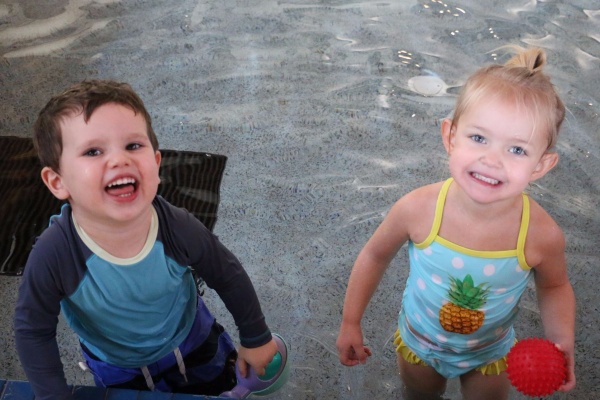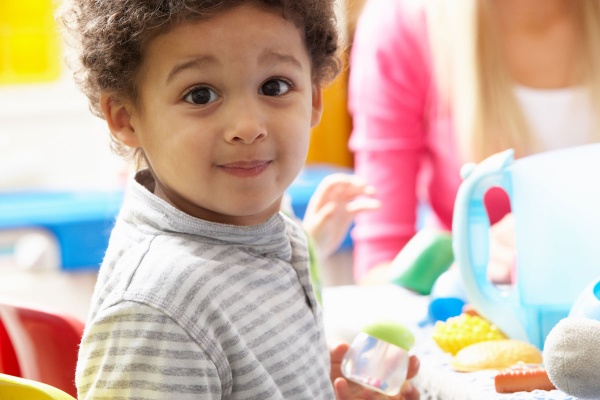

Test Anxiety: How to Slay the Dragon
It’s test day and your little one has a whole list of reasons why he can’t go to school. Tummy ache, headache, too tired…and sadly, the real reason is he’s afraid of the big, scary test he’s heard so much about.
According to the Academy of child and Adolescent Psychiatry, children as young as five years of age can feel apprehensive about taking exams. They worry about bad grades, failure, disappointing teachers and parents, wrong answers and more. The youngest may worry about what the test looks like and what a correct answer should consist of. Will she have to type on the computer? Will he fail to understand the directions?
The entire world of school testing can seem like a scary dragon ready to breathe fire on your son or daughter. But before you scream in a frenzy of test-anxiety drama, here are some common sense ways to deal with the scary prospect of testing.
Recognizing the Problem
Test anxiety can cause children to offer vague symptoms of illness to avoid the object of their fear. Fear of failure is a powerful emotion and some children are more prone to it than others. In extreme cases test anxiety can cause physical problems such as headache and nausea, rapid heartbeat and emotional outbursts of anger. The child feels overwhelmed and unable to cope. He may have an inability to focus attention in the testing situation or she may indulge in negative self-talk, “I’m such a loser, I can’t do it.”
Long-term stress can cause symptoms over time. Children may become afraid to stay alone, have nightmares or trouble getting to sleep. It’s a good idea to document negative behaviors and take note of testing times to see if there is a correlation. While most children will experience a minimum of test anxiety trauma, a few will need the help of a counselor or other health professional to understand their feelings and plan ways to cope.
Managing the Problem
Even a simple weekly spelling test can raise anxiety in certain children. If the task seems difficult, there is always pressure to perform and “do better.” Here are some ways to alleviate the fears associated with taking any kind of test:
- Keep it Light: Children will in some measure, reflect your attitude toward the test. Be sure you’re not reinforcing fears by conveying your worry about their performance. Keep the tone light when discussing tests. Talk about similar situations such as learning a new skill in baseball or soccer. Emphasize “doing your best” and that’s good enough. Use a neutral tone of voice that minimizes the stressors associated with taking a test.
- Provide Practice: Whenever possible, alleviate fears by taking practice tests during study times. Practice helps children get over the unknown aspects of testing that might build anxiety.
- Don’t Overdo Study Times: Make study times regular, but short. For children in K-3 study times of 15-20 minutes are optimal. For a nervous student, the time might even be ten minutes with lots of encouragement and light-hearted fun mixed in the practice. Use appropriate materials such as flash cards, oral practice and written tests. Practice reading directions and following them carefully.
- Provide a Quiet Study Space: Be sure that study time is protected and undisturbed by other noise or interruption. A special study spot with the child’s personal study materials is a good idea and may provide motivation for the task.
- Anxiety is a Normal Part of Life: Help your child understand that everyone experiences a measure of anxiety when doing new things or when the occasion is an important one. Liken the situation to playing in the Super Bowl or performing in the Olympics. Those are huge arenas in which to perform. Everyone feels anxiety in such situations, but the opportunity is worth the cost.
- The Role of Failure in Learning: Take an honest look at failure. Everyone experiences failure in life if they’re competing in any way. Teams lose games, individuals fail at meeting a goal—failure is a natural part of “being in the game.” Famous athletes, scientists, and other world leaders have tried and failed many times. Help your child learn that failing is part of learning and life and is not to be feared.
- Unconditional Love: It goes without saying that your child needs to know they are loved and valued no matter how they score on any test in the world. Their worth is a given and their performance is just that—how well they scored on a given day.
- Be a Role Model: Model good management of stress in your own life. How do you handle the anxieties in taking on a new job or a new role in a volunteer position? What do you do and say when you make a mistake or fail in some way? Children are all ears when it comes to their parents’ ability to cope with stressors.
Whether we like it or not, we live in a time when testing is a big part of our child’s learning experience. The best way to deal with the tests is to prepare your child to have a healthy understanding of the process and to enable them to perform to their potential.
Your attitude toward testing and the support you provide your child will make a big difference in the way he or she responds to testing situations. Together you can slay the testing dragon.
Jan Pierce, MEd, is a retired teacher and freelance writer who specializes in parenting, education and family life. She is the author of Homegrown Readers: Simple Ways to Help Your Child Learn to Read.





















